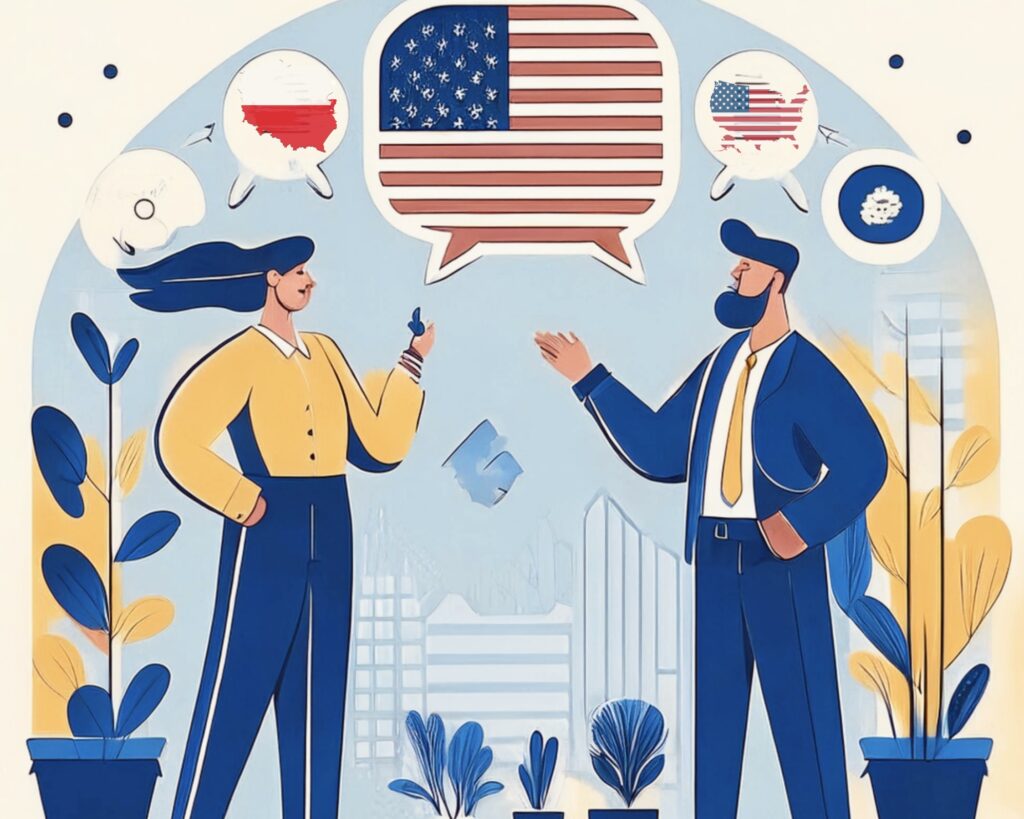Culture that eats strategy for breakfast.

Culture that eats strategy for breakfast and goes ahead with the numbers – not about “what” is the content of the message but about „the specific way” the recipient likes to receive it.
Almost every journey we have taken in life has not been about itself and its purpose. Whether we wanted it or not, we have always brought ourselves onto it: your own culture, language, way of communication (because language and the way how we communicate are two separate classes), personality, habits and customs. Equally often, during these trips, we had to adapt to the rules of the culture to which we were joining, e.g. the culture of the company or country. Still, when we travel and experience cross – culture relationships, both privately and in business situations, each time we “confront” ourselves with diversity, like the culture of another country or organization in its mild or sometimes brutal form. Every time in such situations we have a chance to redefine ourselves. Become aware of how we really do function in our own culture and what it means to us. How unconscious, learned mechanisms govern us and our reactions. How often do we make intercultural mistakes and use the chance to learn from them? How much do these mistakes cost us? And most importantly – what to do to avoid repeating them and achieve goals more effectively and cooperate better?
When I travel around the world and talk to the people about Poles, I hear a lot of good things. First of all, they are “professionals”, great experts, especially in IT, speak foreign languages. At the same time, in the second give, I receive information that they communicate poorly, very “rough”, cannot use “small talk”, but go straight to the problem, are harsh in business relations and do not emphasize the positive aspects, only the negative ones. Our invisible mechanisms – like the air we breathe – are historically and culturally justified, but they can still cost us a lot in business relations on the world stage. How to be still ourselves and be more successful at the same time?
Personality differences and cross culture differences are not the same, but they are equally important.
Each of us, apart from our own preferences and personality, which is an attribute of an individual, operates in certain sets of contexts, values and practices. We can conventionally call them the culture of a given group. Sets of various rules and behaviours are characteristic of a given culture. When we compare several business practices manifested in two separate cultures, we can discover the reason for our low effectiveness in communication, which drastically influences the level of good cooperation and, ultimately, profits. For example, let’s compare several elements in business culture between Poland and the USA.
1. Communication style: Direct vs. Diplomatic
• Poland: communication is often direct and concise, which can be perceived as factual and specific, but also sometimes as abrasive. Because of our history, we talk about the negative aspects more often.
• USA: Americans tend to prefer a more diplomatic and positive communication style. In conflict situations, they avoid direct criticism and prefer to “soften” the message with positive phrases. They focus strongly on the positive sides, perceiving discussion of the negatives on the forum as “inappropriate”.
2. “Small Talk”
• Poland: In Poland, “small talk” is often treated as a “conversation about nothing in particular”, i.e. completely pointless and meaningless – a waste of time. As a result, the recipients of the communication can expect to get straight to the point.
• USA: “Small talk” is an important element of building relationships. Recipients of communication often expect a short conversation on loose topics before discussing business, which is intended to build a positive atmosphere.
3. Reliability and accuracy vs. Proactivity and enthusiasm
• Reliability and Accuracy: European customers, including Polish ones, often value accuracy and reliability of service more than speed and enthusiasm. They prefer comprehensive answers and can tolerate longer response times if high-quality service is provided.
• Proactivity and Enthusiasm: American customers focus more on enthusiastic and proactive service, where salespeople or customer service representatives demonstrate a willingness to help and actively propose solutions.
These are narrowly selected examples illustrating how much, despite personality and temperament differences, we differ in seemingly, the same areas. Before we start writing an e-mail or starting a conversation, it is worth considering not “what” the content is, but „how” the interlocutor likes to receive messages. Good communication and cooperation assumes that everyone wins after the negotiations are completed. Therefore, we do not have to force ourselves to adapt to the style and patterns of another culture, but “package” the content of our message in a way that our recipients like to receive and is understandable to them. This is the great art of communication, which is everything, and everything is communication.
Author: Anna Modrzewska